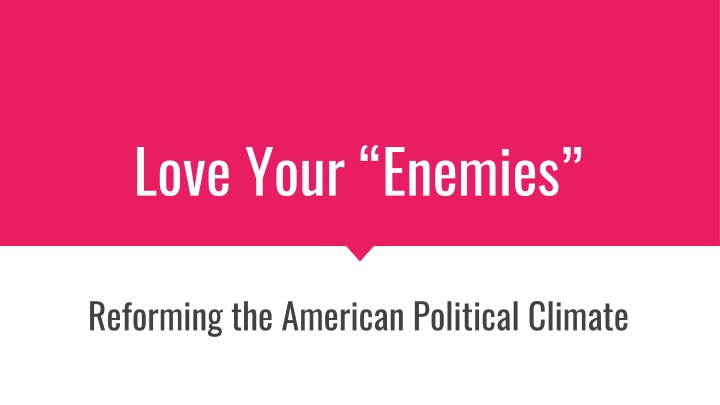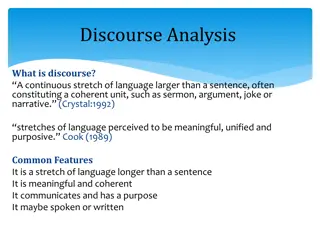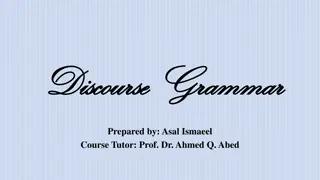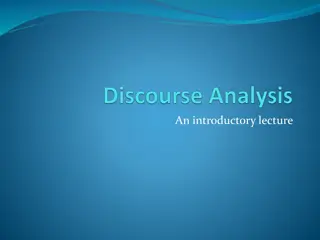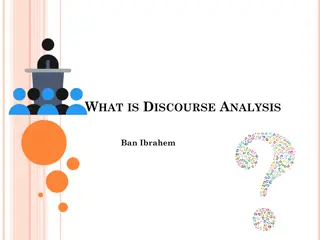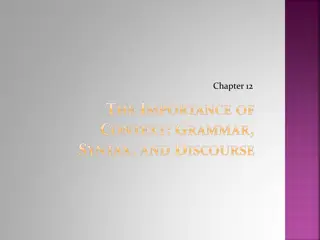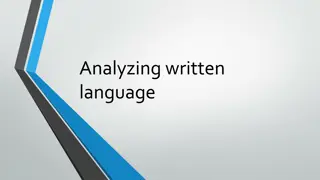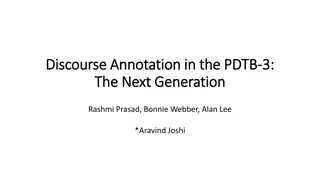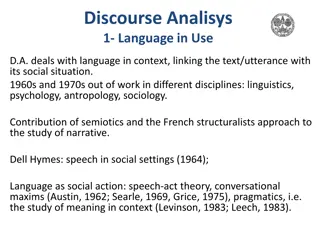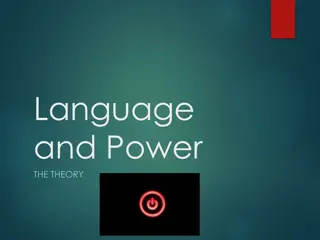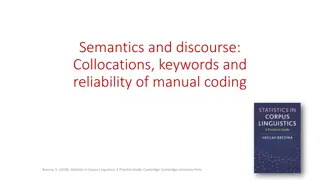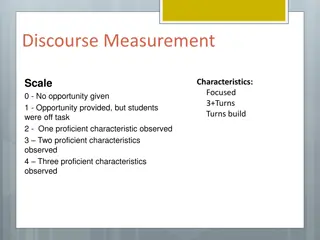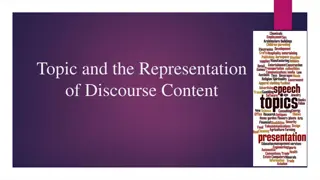Transforming Political Discourse: Embracing Love and Understanding
Understanding the pitfalls of contempt, self-righteousness, and judgmental attitudes in political dialogue is crucial for fostering productive conversations. Embracing love, compassion, and respect for differing opinions can break harmful cycles and promote positive change in society.
Download Presentation

Please find below an Image/Link to download the presentation.
The content on the website is provided AS IS for your information and personal use only. It may not be sold, licensed, or shared on other websites without obtaining consent from the author.If you encounter any issues during the download, it is possible that the publisher has removed the file from their server.
You are allowed to download the files provided on this website for personal or commercial use, subject to the condition that they are used lawfully. All files are the property of their respective owners.
The content on the website is provided AS IS for your information and personal use only. It may not be sold, licensed, or shared on other websites without obtaining consent from the author.
E N D
Presentation Transcript
Love Your Enemies Reforming the American Political Climate
What is Wrong With the Current Climate Contempt- The feeling that a person or a thing is beneath consideration, worthless, or deserving scorn. Self-Righteousness- The quality of having or characterized by a certainty, especially an unfounded one, that one is totally correct or morally superior. Judgemental Attitudes/- Making assumptions about other people and their motives/morality when not enough information is present. Those with differing opinions are not your enemies.
Examples of Contempt Person X is liberal/conservative/other, whenever person X talks to me, I refuse to engage in basic human conversation because of their beliefs. (saying hello, waving, acknowledging their existence etc.) Person X is ignorant, I need to educate them about their ignorance. I am quick to anger because I think less of a person for their stupid opinions. You have absolutely no say in argument X because you are [insert race or gender.]
Examples of Self-Righteousness Person X does not support same-gender marriage, therefore they are evil and I am better than them because I do. How could person X support any type of abortion? They are evil and I am better than them because I am completely pro-life. I am morally superior to person X, so their opinions do not matter because they do not care about[insert people group.]
Examples of Judgemental Attitudes Person X supports candidate Y; Person X must be a terrible person and a support rapists. Person X is a [insert religion], they must hate America/LGBT people. Person X is a member of group X (religion, race, ethnicity, political party), they must hate all (insert religion, race, etc.)
Why Are These Things Bad? They discourage productive debate. It is very difficult to have a productive and peaceful conversation with someone that you think is beneath you, immoral, or stupid. They build up over time. Every time you think or act in the described manners it snowballs until it can consume you. They can cause a mutual dislike or hatred between people that have never met or talked.
Why Should I Want to Change Personally? If you do not wish to be judged or treated with contempt, then you can (and should) break the cycle of contempt. People are inherently valuable and inherently worthy of respect, regardless of their opinions. Love, compassion, patience, and understanding are powerful tools and can change how someone envisions your group (that they may pass judgement on) and help you learn to control your negative emotions.
What Does Change Look Like? (An Apolitical Example) You hear from a friend that someone is asking around for a place to buy a birthday cake for 50 people. You immediately think, how could someone throw a party during the COVID-19 pandemic? How stupid and immoral are they? However, you decide to keep these sentiments in your mind. Upon hearing more information, you have learned that the woman is looking to throw a large 1st birthday party for her son after quarantine is lifted because the doctors said there was less than a 10% chance that he would survive his first year.
Change Part 2 While the previous slide s display of restraint is good, it still has not cured the source of the problem. We must change our hearts to become more patient and compassionate instead of judgemental. When we do this, our first thought will not be one of condemnation, but perhaps curiosity
Tips Approach conversations with intent to learn something from the other person, not to teach them something. Do not make assumptions. Give people the benefit of the doubt. Do not harbor contempt. If someone says something offensive, it is okay to move on from them, but try not to keep your negative feelings. Give everyone that you interact with the same respect that you would give to (insert person that you most respect.)
Closing Everyone has contributed to the snowball of contempt that is engulfing this country. That is to say, we are imperfect, and that is okay. Disagreements are a good thing, they lead to a competition of ideas that drive progress. The best way to create mutual understanding and change is by showing someone, who may not deserve it, grace, love, and compassion.
